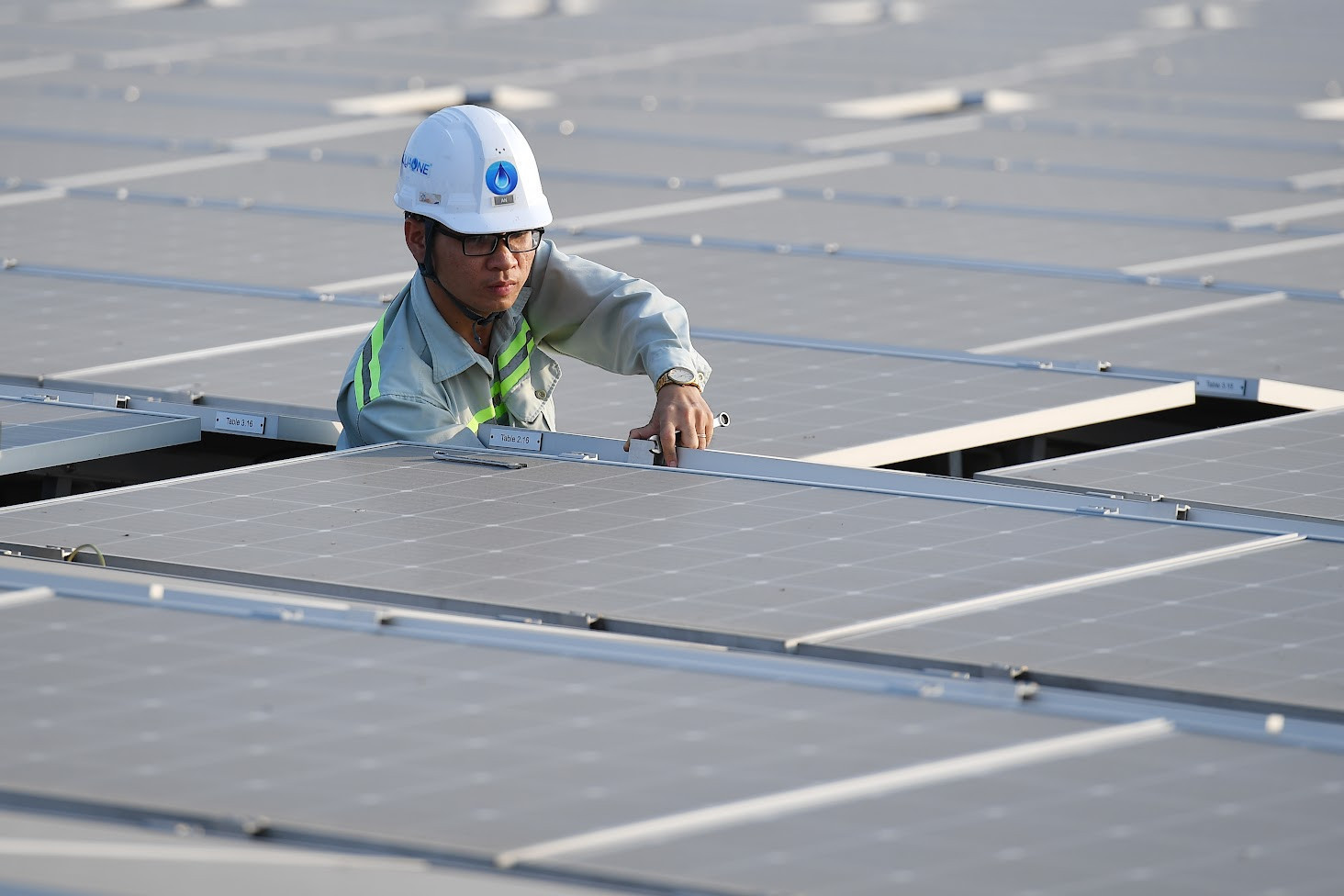
The Ministry of Industry and Trade (MOIT) on April 24 held a workshop to collect opinions for the draft decree on DPPA (direct power purchase agreement) between electricity generators and clients and a draft decree on the mechanism to encourage rooftop solar power development (rooftop solar power systems installed on people’s homes, offices and IZs).
Two options
According to Tran Viet Hoa, head of the Electricity Regulatory Authority of Vietnam, many foreign investors and international organizations have expressed their interest in DPPA and hope that the government of Vietnam will soon set up a DPPA mechanism to obtain global sustainable development goals suitable to the growing trend in the world.
MOIT has designed two options for DPPA – purchasing electricity directly via specific transmission lines; and purchasing electricity via the national grid.
With the first option, there won’t be any restrictions on the type of electricity generation and clients. However, involved parties will have to comply with the current laws on planning, investment, and licensing, regulations on safety and fire prevention and control, as well as regulations on electricity sale contracts.
If involved parties want to sell/buy electricity via the national grid, the sellers must be wind/solar power generators with the capacity of 10MW or higher, while large buyers have to have connection level of 22kv voltage or higher and have an average consumption level of 500,000kwh or higher.
Regarding policies for electricity generators, Kim Yong Sup, deputy CEO of Samsung Vietnam, said he hopes there will be clearer and more detailed instructions, which can be implemented immediately.
MOIT needs to apply a pricing scheme which ensures fairness and healthy competition for electricity generators and clients.
Virginia Foote from the Vietnam Business Forum (VBF) said businesses have high demand for accessing renewable energy and clean power. VBF is willing to suggest opinions during the process of compiling decrees and other legal documents.
She said VBF will send a document to MOIT, and if the draft decrees get approval, they will speed up enterprises’ activities, thus helping attract foreign investment.
Stressing that the decrees have significance for enterprises, the VBF representative said delays will affect the foreign investment attraction. MOIT should promulgate legal documents as soon as possible to reassure foreign investors, especially enterprises with new investment plans.
This will help promote the development of renewables and attract private investment in the sector. VBF recommended setting a legal framework soon, commenting that the government of Vietnam can learn while doing.
Meanwhile, Aguin Toru, chief representative of JBIC (Japan Bank for International Cooperation), said that there should be an estimated time for legal document promulgation to help enterprises better prepare their business plans.
Regarding DPPA, at first, JBIC will focus on wind and solar power, and in the second phase, it will develop biomass and halogen power. Also, JBIC also has proposed developing a waste to electricity model.
Zero-dong for redundant rooftop solar power
Dien said under the DPPA mechanism, if electricity buyers and sellers use the national grid, the payment will be made in two parts. The electricity volume to be consumed by clients and provided by renewable plants will be paid in accordance with the market, while the remaining volume will be paid in accordance with current regulations.
He stressed that the DPPA and the policy on encouraging "self-produced, self-consumed" rooftop solar power are not controversial. The redundant electricity to be generated by rooftop solar power systems and sent to the national grid will be paid zero dong.
He said that the mechanisms aim at encouraging self-produced, self-consumed rooftop solar power can remove legal barriers for the development of electricity sources.
To Xuan Bao, head of the MOIT’s Department of Electricity and Renewable Energy, said the electricity demand in Vietnam increases by 8-10 percent annually.
Vietnam has committed to obtain carbon neutrality by 2050, so the country needs to develop electricity generation sources and carry out the power structure, striving for green production.
Luong Bang